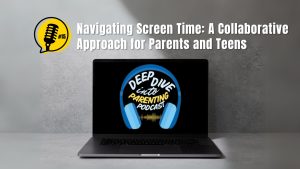The Internet has made hardcore pornography more accessible than ever before in human history. More people visit pornographic sites than Twitter, Netflix and Hulu combined. As the prevalence of pornography grows online and in popular culture, so does nearly forty years of scientific evidence that viewing pornography has catastrophic effects on our lives.
![]() When we talk to our children about cyber safety and appropriate online behavior we must address the issue of online pornography. Talking to your child about sex is not easy. The mere thought of having to talk about pornography will produce significant levels of anxiety in most parents. Not only are you faced with the uncomfortable task of talking to your child about why they should not view pornography, but you will be fighting the prevailing popular cultural view that pornography is victimless and beneficial. Nothing could be further from the truth. Next to street drugs and alcohol abuse, pornography is becoming one of our society’s most serious public health issues.
Waiting until your child is exposed to pornography to address this issue can be heartbreaking. I have spoken to parents from all over the United States, and they have shared their personal agony with me when they discovered their child was exposed to online pornography. Sometimes this exposure was unintentional, and sometimes their child was seeking it out. Their stories are all so similar. They are shocked at how easy it was for their eight-year-old to accidentally land on a hardcore pornographic site. How disturbing and extreme the sex acts portrayed on the homepage of the website were, and their sense of guilt and failure of not better protecting their child.
When we talk to our child about pornography, I don’t think it is enough to say: “Just don’t watch it.” This is not a compelling argument against all the hormones and neural chemicals flooding their brains when they look at porn. When it comes to drugs or porn, our discussion with our children (especially with boys) must explore the bigger picture. Porn is not neutral. Porn will have hurtful effects on you and others. We need to make a case that will be meaningful when your son leaves the shelter of your router’s firewall, and when they are connected to an unfiltered internet.
I have two teenaged boys. I sat down with each of them and shared four evidence-based points with them: 1) Porn hurts your brain; 2) Porn hurts women; 3) Porn hurts families, and 4) Porn fuels human trafficking. I will lay out the case of each point and then share how I presented it to my children.
When we talk to our children about cyber safety and appropriate online behavior we must address the issue of online pornography. Talking to your child about sex is not easy. The mere thought of having to talk about pornography will produce significant levels of anxiety in most parents. Not only are you faced with the uncomfortable task of talking to your child about why they should not view pornography, but you will be fighting the prevailing popular cultural view that pornography is victimless and beneficial. Nothing could be further from the truth. Next to street drugs and alcohol abuse, pornography is becoming one of our society’s most serious public health issues.
Waiting until your child is exposed to pornography to address this issue can be heartbreaking. I have spoken to parents from all over the United States, and they have shared their personal agony with me when they discovered their child was exposed to online pornography. Sometimes this exposure was unintentional, and sometimes their child was seeking it out. Their stories are all so similar. They are shocked at how easy it was for their eight-year-old to accidentally land on a hardcore pornographic site. How disturbing and extreme the sex acts portrayed on the homepage of the website were, and their sense of guilt and failure of not better protecting their child.
When we talk to our child about pornography, I don’t think it is enough to say: “Just don’t watch it.” This is not a compelling argument against all the hormones and neural chemicals flooding their brains when they look at porn. When it comes to drugs or porn, our discussion with our children (especially with boys) must explore the bigger picture. Porn is not neutral. Porn will have hurtful effects on you and others. We need to make a case that will be meaningful when your son leaves the shelter of your router’s firewall, and when they are connected to an unfiltered internet.
I have two teenaged boys. I sat down with each of them and shared four evidence-based points with them: 1) Porn hurts your brain; 2) Porn hurts women; 3) Porn hurts families, and 4) Porn fuels human trafficking. I will lay out the case of each point and then share how I presented it to my children.
![]() What do cocaine and online pornography have in common? As it turns out, quite a bit. Deep inside your brain is a thing called the “reward pathway.” [1] The reward pathway is an important mechanism for our survival. It connects behavior to a feeling of wellness or pleasure. It does this by releasing chemicals in your brain—mainly one called dopamine, but also others like oxytocin. [2] These neural chemicals are very powerful, and for good reason. It promotes or rewards activities that are essential to life like eating, sex (procreation), or for accomplishing a task that you have worked hard for (hunting and gathering). [3] These chemicals are what makes us feel happy and euphoric. Unfortunately, they can be hijacked by street drugs and pornography. [4]
Street drugs like cocaine and heroin make the user feel high by triggering the reward pathway to release high levels of dopamine. Viewing pornography uses the exact same reward pathway as hard street drugs. Remember, the reward pathway’s purpose is to lead the user back to the behavior that triggered the chemical release. The surge of dopamine through the brain does more than make the user achieve a euphoric high, it helps to create new brain pathways. In other words, it changes their brain. The more a drug user injects heroin or a porn user watches porn, the more those pathways get wired into the brain, making it easier and easier for the person to turn back to using, whether they want to or not. [5] This is called addiction. If an adolescent is watching porn, these brain changes and neural pathway connections to porn are occurring at a crucial time in their cognitive brain development.
Yes, you can become addicted to watching porn. Porn also has the same trajectory as other substance addictions. Over time, a junkie will eventually require more and more of a drug to get a buzz or even just feel normal. Similarly, porn users can quickly build up a tolerance as their brains adapt to the high levels of dopamine. [6] In other words, even though porn is still releasing dopamine into the brain, the user can’t feel its effects as much. As a result, many porn users have to find more porn, find it more often, or find a more extreme version—or all three—to generate even more dopamine to feel excited. [7]
What do cocaine and online pornography have in common? As it turns out, quite a bit. Deep inside your brain is a thing called the “reward pathway.” [1] The reward pathway is an important mechanism for our survival. It connects behavior to a feeling of wellness or pleasure. It does this by releasing chemicals in your brain—mainly one called dopamine, but also others like oxytocin. [2] These neural chemicals are very powerful, and for good reason. It promotes or rewards activities that are essential to life like eating, sex (procreation), or for accomplishing a task that you have worked hard for (hunting and gathering). [3] These chemicals are what makes us feel happy and euphoric. Unfortunately, they can be hijacked by street drugs and pornography. [4]
Street drugs like cocaine and heroin make the user feel high by triggering the reward pathway to release high levels of dopamine. Viewing pornography uses the exact same reward pathway as hard street drugs. Remember, the reward pathway’s purpose is to lead the user back to the behavior that triggered the chemical release. The surge of dopamine through the brain does more than make the user achieve a euphoric high, it helps to create new brain pathways. In other words, it changes their brain. The more a drug user injects heroin or a porn user watches porn, the more those pathways get wired into the brain, making it easier and easier for the person to turn back to using, whether they want to or not. [5] This is called addiction. If an adolescent is watching porn, these brain changes and neural pathway connections to porn are occurring at a crucial time in their cognitive brain development.
Yes, you can become addicted to watching porn. Porn also has the same trajectory as other substance addictions. Over time, a junkie will eventually require more and more of a drug to get a buzz or even just feel normal. Similarly, porn users can quickly build up a tolerance as their brains adapt to the high levels of dopamine. [6] In other words, even though porn is still releasing dopamine into the brain, the user can’t feel its effects as much. As a result, many porn users have to find more porn, find it more often, or find a more extreme version—or all three—to generate even more dopamine to feel excited. [7]
![]() In almost all porn, women are nothing more than objects used to satisfy the sexual desires of the man. Women in the video are depicted as being happy or turned-on with whatever the man wants to do even if it’s painful or humiliating. A study of the most popular porn videos found that nine scenes out of 10 showed women being verbally or physically abused, yet the female victims almost always responded with either pleasure or appeared to be neutral. [8] As a result, male porn users’ ideas of what sex or loving relationships should look like are often warped.
In an anonymous survey of 247 Canadian junior high school students whose average age was 14 years, James Check and Kristin Maxwell (1992) report that 87% of the boys and 61% of the girls said they had viewed video-pornography. The average age at first exposure was just under 12 years. 33% of the boys versus only 2% of the girls reported watching pornography once a month or more often. As well, 29% of the boys versus 1% of the girls reported that pornography was the source that had provided them with the most useful information about sex (i.e., more than parents, school, friends, etc.). Finally, boys who were frequent consumers of pornography and/or reported learning a lot from pornography were also more likely to say that is was “OK” to hold a girl down and force her to have intercourse. [9]
In almost all porn, women are nothing more than objects used to satisfy the sexual desires of the man. Women in the video are depicted as being happy or turned-on with whatever the man wants to do even if it’s painful or humiliating. A study of the most popular porn videos found that nine scenes out of 10 showed women being verbally or physically abused, yet the female victims almost always responded with either pleasure or appeared to be neutral. [8] As a result, male porn users’ ideas of what sex or loving relationships should look like are often warped.
In an anonymous survey of 247 Canadian junior high school students whose average age was 14 years, James Check and Kristin Maxwell (1992) report that 87% of the boys and 61% of the girls said they had viewed video-pornography. The average age at first exposure was just under 12 years. 33% of the boys versus only 2% of the girls reported watching pornography once a month or more often. As well, 29% of the boys versus 1% of the girls reported that pornography was the source that had provided them with the most useful information about sex (i.e., more than parents, school, friends, etc.). Finally, boys who were frequent consumers of pornography and/or reported learning a lot from pornography were also more likely to say that is was “OK” to hold a girl down and force her to have intercourse. [9]
![]() Research has found that marriages in which one pe
Research has found that marriages in which one pe






